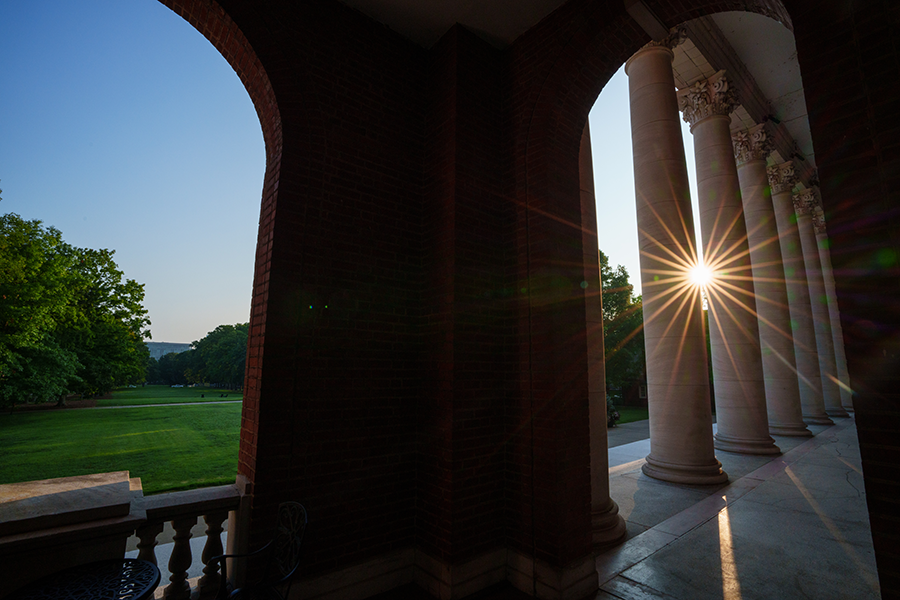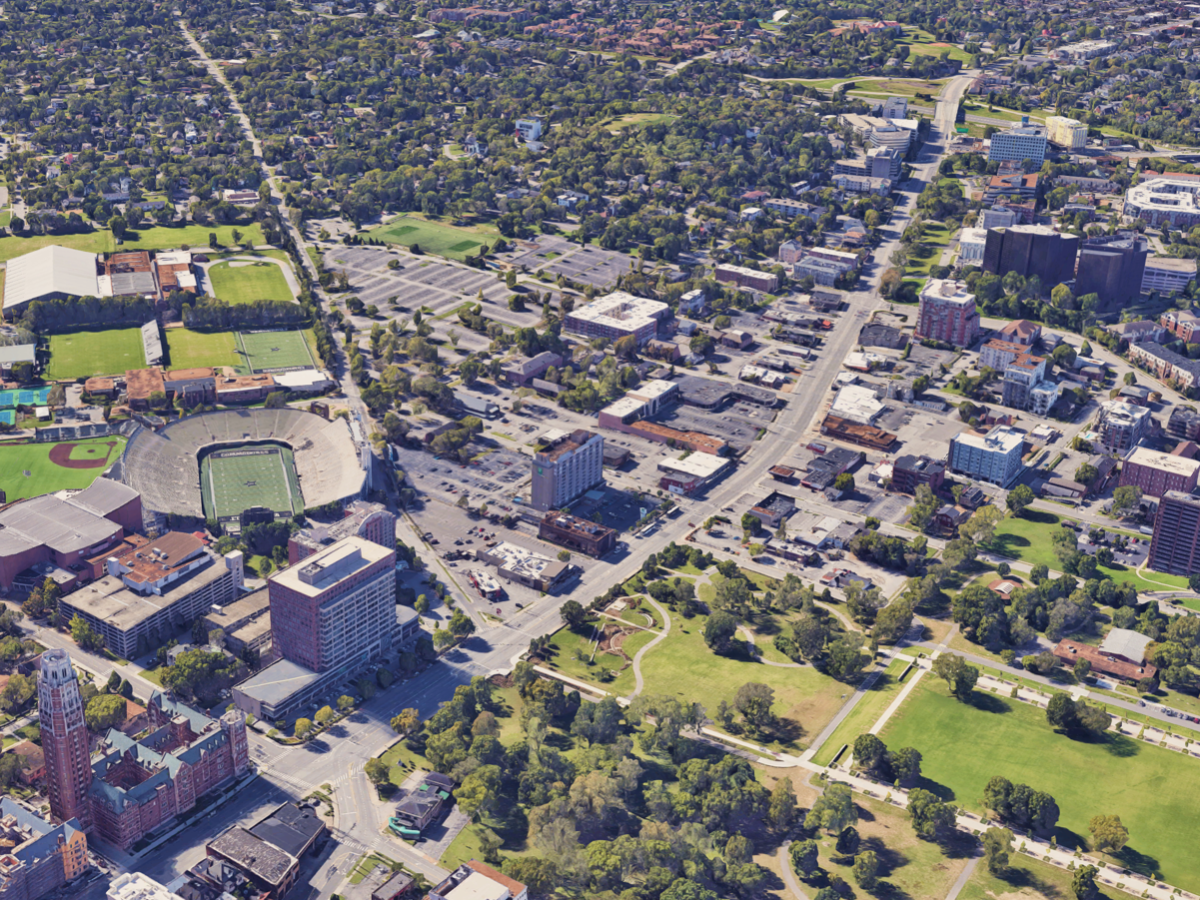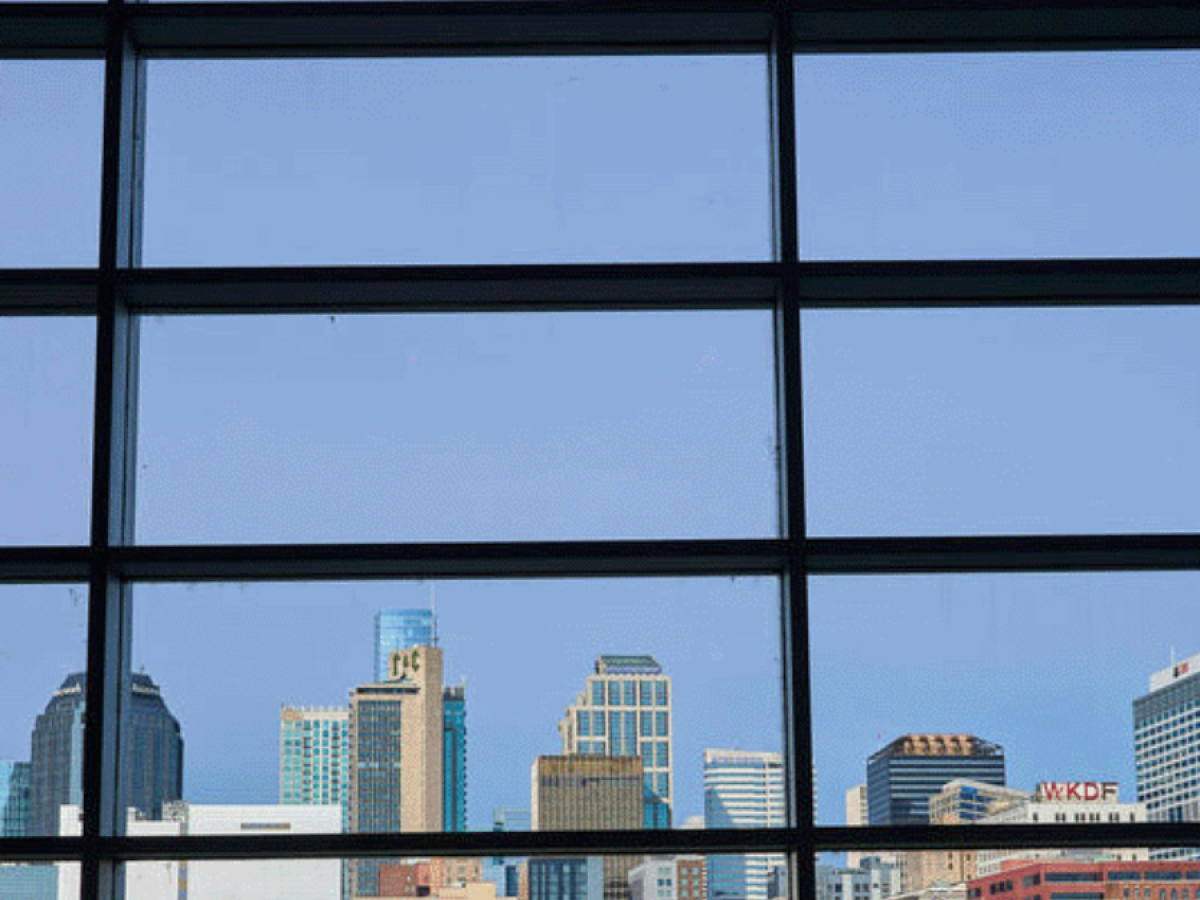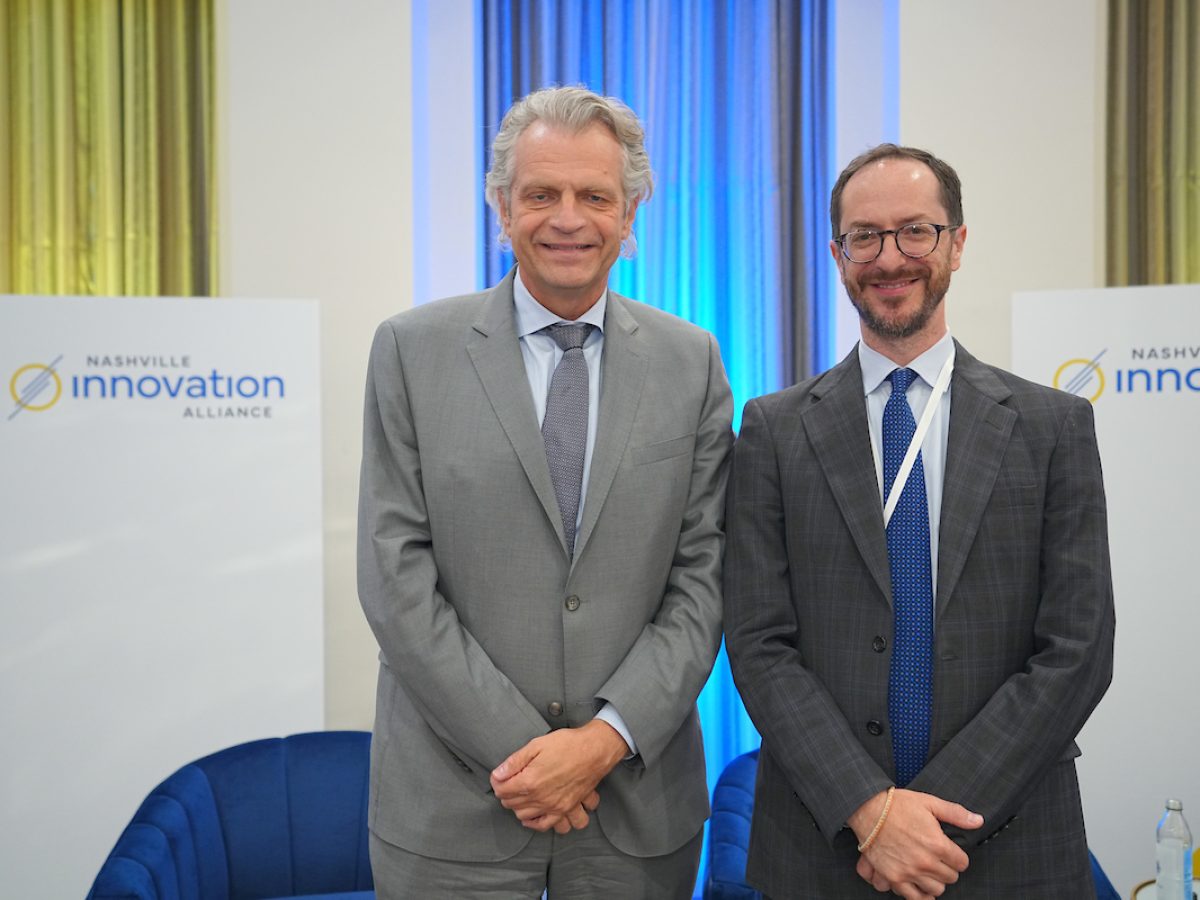Developing an innovation ecosystem
For Nashville and Tennessee, innovation-producing industries create good jobs and opportunities that open pathways to more inclusive prosperity, and a stronger, more diverse and resilient economy overall.
A robust local innovation economy will enable Vanderbilt’s researchers to have more impact by broadening cross-sector collaborations that can lead to new discoveries and new opportunities for sharing those discoveries with the world. A thriving innovation economy also provides more local opportunities for Vanderbilt students and graduates.

Creating a space for innovation
Expanding our local innovation economy – and our contribution to it – is one of the university’s highest priorities. Central to most innovation economies is an “innovation hub”—buildings dedicated to research, innovation and collaboration. There are many examples around the country, and around the world, of how investment in an innovation hub creates a "center of gravity” for local innovation and contributes to a more energized innovation economy.
As Vanderbilt considers how to grow its campus over the next 20 or 30 years, we are in the early stages of exploring creating a space for innovation on or adjacent to our campus. We envision a space that would facilitate connection among innovators and entrepreneurs across a variety of disciplines and industries and corporate partners.
Conversations are underway within the Vanderbilt community as well as with leaders of innovation cities around the world and local government and community leaders to develop a strategic approach that will map a path toward greater collaboration, innovation and impact.
Steps Taken So Far
- September 2023:
- Provost C. Cybele Raver announced the formation of the Provost’s Science Space Planning Committee, a faculty and staff-led initiative established to ensure that Vanderbilt’s physical spaces properly serve the needs and goals of scientific research and discovery. The committee included faculty and staff from across the university who analyzed the university’s science spaces and assessed immediate and future needs. Their findings informed next steps toward making sure Vanderbilt’s physical science spaces serve ambitious objectives across all programs.
- June 2024:
- Chancellor Diermeier appointed the innovation ecosystem advisory group made up of faculty and staff from across the university. The group is building upon existing work to leverage Vanderbilt-driven research and innovation to support local community needs, attract entrepreneurial talent and venture investment, and expand the city and region’s innovation capacity. It is also examining infrastructure needs, including dedicated physical space, programs for collaboration and how to foster a culture of innovation.
- Vanderbilt joined Nashville Mayor Freddie O’Connell in launching the Nashville Innovation Alliance, which brings together public, private, civic and education institutions to enhance the region’s innovation ecosystem. The aim of the alliance is to grow Nashville’s innovation capacity to create a local economy that is more resilient and prosperity that is more inclusive.
- July 2024:
- The Nashville Innovation Alliance hosted the Innovation Ecosystem Forum, which brought representatives from innovation districts in Barcelona, Berlin and New York City. One of the key takeaways from the event was that Vanderbilt is uniquely positioned to grow its innovation ecosystem including creating a physical place for innovation to thrive.
- February 2025:
- The Nashville Innovation Alliance and other stakeholders toured Tech Square in Atlanta, a space dedicated to collaboration, research and innovation. Key takeaways learned included:
- The Value of Co-Location – Shared hubs foster collaboration and strengthen corporate attraction. For example, Atlanta’s Centergy One building is strategically positioned between Georgia Institute of Technology and Technology Square to encourage cross-sector pollination.
- A Shared Vision – Georgia Tech, the Metro Atlanta Chamber and Invest Atlanta are all aligned around a shared priority of driving economic growth through innovation, with a focus on inclusive development that benefits all residents.
- Collaboration as a Key to Success – Atlanta’s economic development stakeholders collaborate consistently and have strong public investment, helping drive growth and innovation through these longstanding partnerships.
- The Nashville Innovation Alliance and other stakeholders toured Tech Square in Atlanta, a space dedicated to collaboration, research and innovation. Key takeaways learned included:
- March 2025:
- The Nashville Innovation Alliance and LaunchTN partnered to host a special Nashville Night at SXSW, where we shined a light on our city’ growing innovation ecosystem. The event brought together leaders from Nashville’s tech and startup communities and was attended by hundreds. These connections – from entrepreneurs in emerging military tech to corporate partners – highlighted the energy and collaboration that define our community.
- The first Nashville Tech Studio grant was awarded by the Nashville Innovation Alliance to foster a collaboration between the Nashville Fire Department and Vanderbilt University that will analyze data to help allocate resources, determine optimal staffing levels and even predict future incidents. An initiative of the Alliance, the Nashville Tech Studio works with Metro Nashville officials to identify high-priority challenges. Once identified, Metro departments are paired with experts at Vanderbilt and other local universities, as well as industry partners, to pilot technology-based real-world solutions to help address Nashville’s most complex challenges.
- April 2025:
- ‘Tech Talent at Scale,’ a technology-focused workforce development event, was held at the Student Life Center. With discussions on strengthening Nashville’s tech talent pipeline and insights from distinguished experts and industry leaders, this event identified novel collaborative solutions to help bring higher-paying jobs to more Nashvillians and to position the region as a premier center for innovation.



